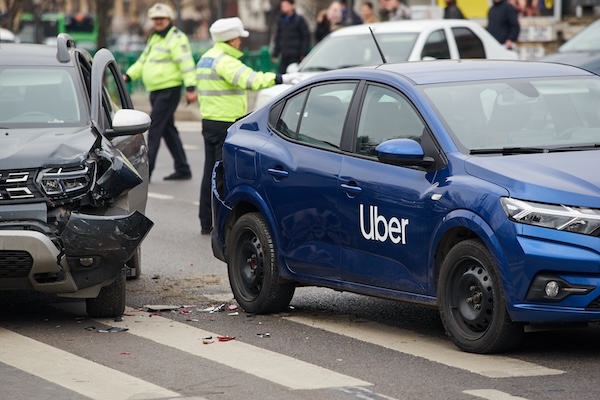Hurt your back in a Chicago crash, CTA incident, or work accident? Our Chicago back injury lawyers help clients recover medical bills, lost wages, and pain and suffering—on a contingency fee, so you pay nothing unless we win. As licensed Illinois attorneys with deep experience in Cook County courts, we know how to build strong cases using medical evidence and expert testimony. Schedule a free consultation today.
Get Your Free Case Review Today
No fees unless we win your case. Call now or fill out our form.
What Is a Back Injury Lawyer?
A back injury lawyer specializes in personal injury law cases involving spinal injuries. We handle everything from soft tissue sprains and strains to serious spinal cord injuries that cause permanent disability.
Focus Areas: Herniated/Bulging Discs, Spinal Cord Injuries, Fractures, Sprains/Strains
Our practice focuses on all types of back injuries, including herniated discs, bulging discs, vertebral fractures, and spinal stenosis. We also handle cases involving spondylolisthesis and sciatica/radiculopathy.
Cases We Handle: Car, Truck, Rideshare (Uber/Lyft), CTA Bus/Train, Slip-and-Fall, Construction, Defective Products, Malpractice
Whether your injury happened in a car crash on Lake Shore Drive or a slip-and-fall at work, we have the experience to help. Our team handles CTA accidents, construction site injuries, and medical malpractice cases.
Trial vs. Settlement and When Each Makes Sense
Most back injury cases settle through settlement negotiation, but we’re ready for trial when needed. We’ll explain whether trial vs. settlement makes sense for your specific situation.
Pre-existing Conditions vs. Aggravation of Injury
Prior back problems don’t disqualify you from recovery. Illinois law allows compensation for aggravation of pre-existing conditions. The “eggshell plaintiff” principle means defendants take victims as they find them—if an accident aggravates your prior condition, that’s compensable when supported by imaging and treating physician opinions.
Back Injury Cases We Handle in Chicago (Car, CTA, Work, Slip-and-Fall)
Car, Truck, and Rideshare (Uber/Lyft) Accidents
Vehicle accidents are the leading cause of back injuries in Chicago. High-impact crashes can cause everything from whiplash to spinal fractures. For rideshare accidents, coverage depends on the driver’s status: up to $1,000,000 when a trip is accepted/ongoing, lower limits when the app is on but no ride accepted—this affects your recovery options.
CTA Bus/Train Injuries and the One-Year Deadline (70 ILCS 3605/41)
Sudden stops, falls, and accidents on CTA vehicles can cause serious back injuries. Remember: Most CTA injury claims must be filed within one year (70 ILCS 3605/41); deadlines are strict—contact us quickly.
Workplace/Construction Accidents and Workers’ Comp
Construction workers face daily risks. Falls from heights, equipment accidents, and lifting injuries require both workers’ compensation and possible third-party claims. File your Application for Adjustment of Claim generally within 3 years of injury or 2 years from the last TTD/medical payment—whichever is later.
Slip-and-Fall and Premises Liability
Property owners must maintain safe conditions. Falls on ice, wet floors, or damaged stairs can cause severe back trauma.
Bicycle and Pedestrian Accidents
Cyclists and pedestrians hit by vehicles often suffer back injuries from the impact and subsequent fall.
Medical Malpractice and Defective Products
Failed surgeries, misdiagnosis, and defective products can cause or worsen back injuries.
Types of Back Injuries and Treatment (MRI/CT, Injections, Surgery)
Herniated/Bulging Discs, Sciatica/Radiculopathy
Disc injuries are common in accidents. MRI/CT/X-ray imaging helps diagnose these conditions accurately. EMG/NCS testing helps identify nerve damage and is often most informative a few weeks post-injury to detect denervation, complementing MRI/CT findings.
Spinal Stenosis, Spondylolisthesis, and Fractures
Fractures require immediate medical attention and often need surgical intervention. Spinal stenosis (narrowing of the spinal canal) can cause chronic pain and disability.
Conservative Care vs. Surgery (RFA, ESI, Microdiscectomy, Fusion)
Physical therapy and pain management often provide relief without surgery. Epidural steroid injections and radiofrequency ablation (RFA) can reduce inflammation and pain. When conservative treatment fails, procedures like microdiscectomy, laminectomy, or spinal fusion may be necessary. An orthopedic surgeon or neurosurgeon will determine the best approach.
Soft-Tissue Injuries: Sprains, Strains, Whiplash
While less severe than fractures, soft-tissue injuries still cause significant pain and limitations.
Spinal Cord Injury and Paralysis
The most severe back injuries can result in partial or complete paralysis.
What to Do After a Back Injury in Chicago
- Get medical care and follow your treatment plan – Immediate treatment documents injuries and helps recovery
- Report the incident (police/employer/CTA form) – File official reports promptly to preserve your rights
- Preserve evidence (photos, witnesses, surveillance, EDR) – Send spoliation letters quickly to preserve surveillance and vehicle EDR data; note that EDR data can be overwritten if the vehicle is moved or repaired
- Avoid recorded statements and broad medical releases – Don’t give statements to insurance adjusters without legal advice
- Track bills, missed work, and out-of-pocket costs – Document all expenses for damage calculations
Limit Social Media and Keep Communications Private
Insurance companies monitor social media. Keep your case details private.
Do I Have a Case? Negligence, Deadlines, and Comparative Fault in Illinois
Proving Negligence: Duty, Breach, Causation, Damages
We must prove negligence by showing the defendant breached their duty of care, causing your injuries and damages.
Statute of Limitations (735 ILCS 5/13-202) and Public Entity Rules
The statute of limitations (735 ILCS 5/13-202) gives you two years for most personal injury claims. Claims against the CTA have stricter deadlines. The Tort Immunity Act (745 ILCS 10/8-101) also affects government claims.
Comparative Negligence (735 ILCS 5/2-1116) with Examples
Comparative negligence (735 ILCS 5/2-1116) means you can recover damages if you’re less than 51% at fault. For example: If you’re 20% at fault, your damages are reduced by 20%; at 51% or more, you recover nothing.
How Our Chicago Back Injury Attorneys Build Your Claim
Evidence Collection, Accident Reconstruction, and EDR Data
We conduct thorough evidence collection including accident reconstruction when needed. We use:
- Police report, 911 audio, and witness statements
- Traffic/CTA/surveillance video and vehicle photos
- Vehicle EDR/black box data and property damage estimates
- Medical imaging (MRI/CT/X-ray), EMG/NCS, and treating physician reports
- Vocational expert opinions, life-care plans, and FCEs
Medical Records, IME Rebuttals, and Expert Witnesses
We review all medical records and work with expert witnesses to build your case. We counter insurance company Independent Medical Examination (IME) reports with strong medical evidence.
Working with Insurers, UM/UIM, and Settlement Negotiations
Protecting Claim Value and Avoiding Common Insurer Tactics
We know insurance company tactics and protect your claim’s value. With UM/UIM coverage, notify your carrier promptly and obtain consent before settling with the at-fault driver to preserve your rights. Medical payments (MedPay) can help with immediate bills regardless of fault.
Demand Packages, Mediation/Arbitration, and When to File Suit
From demand letter/demand package through mediation/arbitration or trial, we fight for you. Filing at the Daley Center vs. suburban districts can influence strategy and settlement—typical case phases in Cook County include discovery (6-12 months), mediation attempts, and trial setting if needed.
Don’t Wait – Illinois Has Strict Deadlines
The statute of limitations is running. Contact us today for your free consultation.
Compensation You May Recover
You may be entitled to:
- Medical bills (ER, imaging, PT, injections, surgery)
- Lost wages and diminished earning capacity
- Pain and suffering and loss of normal life
- Loss of consortium
- Future care, home/vehicle modifications, vocational rehab
- Punitive damages (rare)
Economic Damages: Medical Bills, Rehab, Lost Wages, Future Care
Economic damages cover all financial losses from your injury.
Non-Economic Damages: Pain and Suffering, Loss of Normal Life
Non-economic damages compensate for pain, suffering, and life changes.
Loss of Consortium and Diminished Earning Capacity
Loss of consortium compensates spouses. Diminished earning capacity covers future income losses.
Home/Vehicle Modifications and Vocational Rehabilitation
Severe injuries may require home modifications and vocational rehabilitation.
Punitive Damages (When Applicable)
Punitive damages punish extreme wrongdoing, though they’re rare.
Illinois Injury Law Basics
Statute of Limitations and Key Deadlines
Most claims have a two-year deadline, but exceptions exist.
Modified Comparative Negligence (51% Bar Rule)
You can recover damages if you’re less than 51% at fault.
UM/UIM and MedPay Coverage in Illinois
UM/UIM coverage protects you from uninsured drivers. Medical payments (MedPay) covers immediate medical bills.
Workers’ Compensation vs. Third-Party Claims
You may have both workers’ comp and third-party claims for workplace injuries.
Overview of the Chicago Court System
Cases typically file in Cook County Circuit Court (Richard J. Daley Center). Venue matters—filing at the Daley Center vs. suburban districts can influence strategy, timeline, and settlement leverage.
The Legal Process: From Consultation to Resolution
Free Consultation and Case Evaluation
We start with a free review of your case.
Contingency Fee Agreement: No Fee Unless We Win
Our contingency fee means you pay nothing upfront.
Demand Package, Negotiation, and Mediation
We prepare a comprehensive demand and negotiate aggressively.
Independent Medical Examination (IME) Considerations
We prepare you for insurance company medical exams.
Filing Suit, Discovery, Arbitration, and Trial
If necessary, we file suit and pursue your case through trial.
If You Were Injured at Work
Workers’ Compensation Benefits and Timelines (TTD, PPD, Medical)
Workers’ comp provides temporary total disability (TTD) and permanent partial disability (PPD) benefits plus medical care.
Notice Requirements to Your Employer (Generally 45 Days)
Report injuries promptly to preserve your rights.
Illinois Workers’ Compensation Commission (IWCC) Process
The Illinois Workers’ Compensation Commission (IWCC) handles disputed claims.
Third-Party Liability Beyond Workers’ Comp
You may have claims against equipment manufacturers or other parties.
Coordinating Claims to Maximize Recovery
We coordinate workers’ comp and third-party claims for maximum compensation.
Why Hire a Chicago Back Injury Lawyer
Local Knowledge of Illinois Injury Law and Courts
We know Illinois injury law and the Chicago court system inside out.
Experience with Cook, DuPage, Lake, and Will County Venues
We practice throughout Chicagoland and understand local courts.
Access to Medical and Vocational Experts
We work with top experts to prove your case.
Bilingual Staff, Virtual Consults, and Hospital/Home Visits
We make legal help accessible to everyone.
Focused Strategy to Maximize Compensation
Every case gets personalized attention and strategic planning.
Chicago & Cook County Specifics
Filing in the Circuit Court of Cook County (Richard J. Daley Center)
Most Chicago cases file in the Daley Center downtown.
Public Entity Claims: CTA One-Year Statute and Special Rules
CTA claims have special requirements and shorter deadlines.
High-Traffic Corridors: I-90/94, I-55, Lake Shore Drive, and Downtown Loop
We handle accidents on Chicago’s busiest roads and intersections.
Rideshare Coverage (Uber/Lyft) and Commercial Policy Limits
Rideshare accidents involve complex insurance coverage issues.
Local Hospitals and Specialists for Back Injury Care
We know Chicago’s best spine specialists and treatment centers.
Representative Settlements and Verdicts (Anonymized)
Examples of Back Injury Case Outcomes
Recent results include six-figure settlements for herniated disc cases and seven-figure verdicts for spinal fusion surgeries.
Factors That Influence Case Value (Treatment, Imaging, Liability)
Case value depends on injury severity, treatment needed, and liability strength.
Surgical vs. Conservative Care Cases
Surgery cases typically have higher values than conservative treatment cases.
Disclaimer: Past Results Do Not Guarantee Future Outcomes
Every case is unique. Past success doesn’t guarantee your result.
FAQs
We work on contingency. You pay nothing unless we win your case. Our fee is a percentage of your recovery.
Seek medical care, report the incident, document everything, and contact a lawyer before talking to insurance companies.
Cases range from months to years depending on complexity. Most settle within 12-18 months.
You may recover medical bills, lost wages, pain and suffering, and future care costs.
Studies show represented claimants often achieve better outcomes than those without lawyers.
Look for Illinois licensing, trial experience, back injury focus, and local court knowledge.
Yes. Workers’ comp is complex. You may also have third-party claims.
Most cases settle, but we prepare every case for trial to maximize value.
With contingency representation, your only risk is time. We cover all case costs.
Yes. Most claims have a two-year limit. CTA claims require one-year notice.
Settlements vary widely from $50,000 to $500,000+ depending on treatment and impact.
Most CTA injury claims must be filed within one year (70 ILCS 3605/41); deadlines are strict—contact us quickly.
Prior problems don’t bar recovery. You can claim aggravation of pre-existing conditions.
We work on a contingency fee basis—you pay nothing unless we win. We advance all case costs (filing fees, expert witnesses, depositions) and only recover them if we win your case. Our fee is a percentage of your recovery, clearly outlined in our agreement.
We combine deep local knowledge of Cook County courts with personalized attention to each case. Our bilingual staff, willingness to meet clients at hospitals or homes, and transparent communication set us apart. We focus exclusively on injury law and have the resources to take on insurance companies.
Yes. We work with medical providers who treat on a lien basis, meaning they wait for payment until your case resolves. We can connect you with quality spine specialists, physical therapists, and pain management doctors who understand injury cases.
Get the Legal Help You Need Today
Don’t let insurance companies minimize your back injury claim. Our experienced Chicago back injury lawyers fight for maximum compensation.
Schedule Your Free Consultation Now
No fees unless we win • Free case review • Se habla español
Why Choose Our Firm
- Licensed Illinois attorneys with decades of experience
- Local experience with Chicago and Illinois courts
- Transparent contingency fee (no fee unless we win)
- Clear communication and regular case updates
- Ethical, client-first representation
As a plaintiff in a back injury case, you need attorneys who understand the medical complexities and legal strategies needed to win. We’re ready to be your advocate.
Additional Resources
Learn more about your rights:
- American Bar Association — Trial Practice
- Illinois Courts
- U.S. Department of Justice — Consumer Protection
This page provides general information about back injury claims in Chicago. It’s not legal advice. Every case is unique. Contact us for advice about your specific situation.



